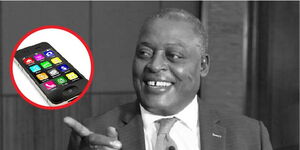A day after National Transport and Safety Authority (NTSA) raised alarm over the high cases of road carnages in the country, the Judiciary has disclosed a simple guide for motorists charged with traffic offenses.
Through a question and answer forum held by Judiciary on Wednesday, June 8, Judiciary detailed some court procedures when a motorist is served with a Notice to Attend Court (NTAC).
According to the third arm of the government, a motorist accused of committing any traffic offense is not permitted to explain what happened before taking plea.
"At first, the accused person should admit or deny the charge before any explanations. Where it is a denial to charge, a bail or bond is granted," Judiciary explained.
Further, the Judiciary noted that a motorist served with a notice to attend court is allowed to send someone to represent them. However, this is only permitted when the motorist is pleading guilty. The representative who can be a spouse, stage manager, or even an advocate, must have sufficient fines commensurate to the offense committed.
During the hearing, the motorist is allowed to raise issues to be considered by the court before delivering the final verdict. In legal terms, it is known as mitigation.
"Personal issues where the accused person would want the court to consider before sentencing including praying for forgiveness but not circumstances surrounding an arrest," the Judiciary described mitigation.
The accused person is also allowed to take a plea where a charge sheet is read to them in court in the language they understand.
According to Judiciary, the accused persons have rights which the courts must consider before delivering the judgment. Any motorists served with a notice to attend court must be treated as innocent until proven guilty beyond reasonable doubt by the prosecution.
They must be tried in the presence of the public before a court. However, the court may decide to exclude the public or members of the press in case for lawful reasons such as protecting the identity and dignity of the accused person.
When motorists appear in court, the trial must begin and conclude without unreasonable delay.
"You must be informed to the charge in sufficient detail to be able to answer it; this means that the prosecution must inform you in advance of the evidence they intend to rely on and that they must allow you to have reasonable access to that evidence. You have the right to remain silent and not to testify during the proceedings or to refuse to give self-incriminating evidence," Judiciary explained.
The Judiciary added that during hearing, the accused has the right to be assisted by an interpreter without making any payments.
Motorists still have the right to challenge evidence presented in court against them regarding any traffic offense.
This came even as NTSA, on Tuesday, June 7, disclosed plans to roll out the Integrated Transport Management System (iTMS) to help curb road accidents in the country.
According to the regulatory agency, the new system will be critical as it will allow police officers to automatically gather information and recommend appropriate action for Traffic Rules offenders.












